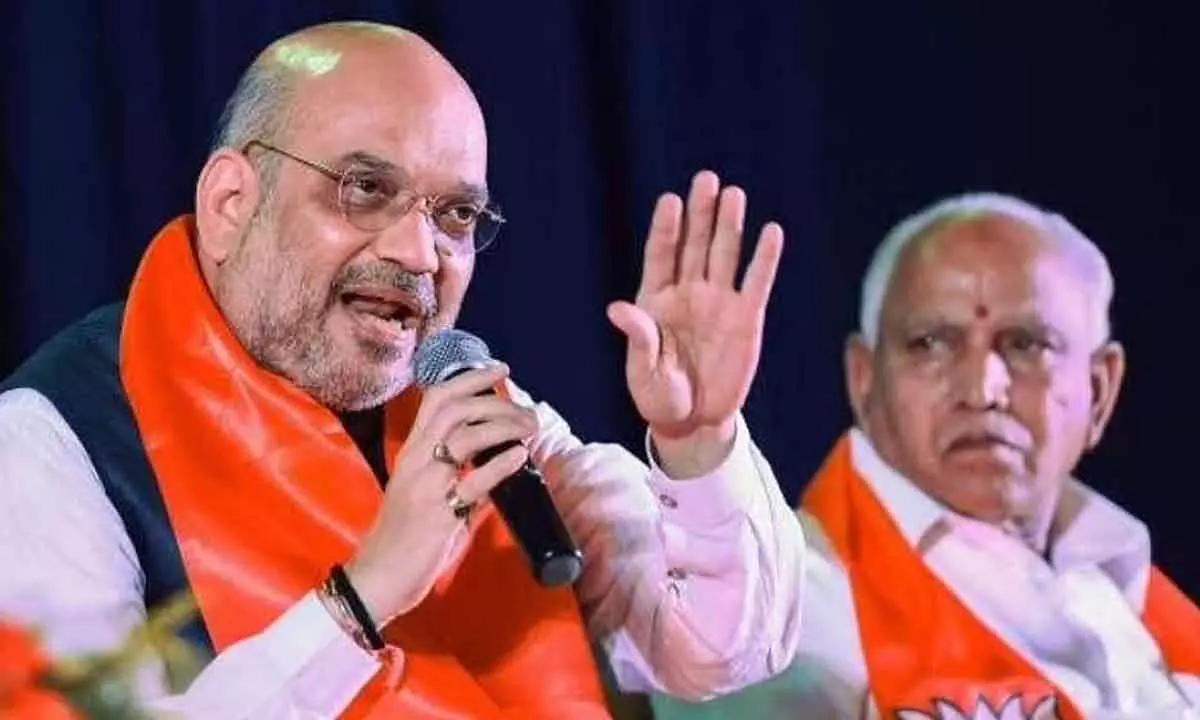BJP's Hindi politics will hurt it
nothing political about it
image for illustrative purpose

The Bharatiya Janata Party's newly revived love for Hindi could have dangerous consequences—for the country as well as the party itself. At a time when so many and varied threats—communal disturbances, separatism, jihadist violence, casteism, Maoism, et al—plague the nation, a language-based conflict will only add to our misery.
It all started with Home Minister Amit Shah's comment that was reported last month, that the people of different States should use Hindi and not English when talking to each other. "Prime Minister Narendra Modi has decided that the medium of running the government is the Official Language, and this will definitely increase the importance of Hindi. Now the time has come to make the Official Language an important part of the unity of the country. When citizens of States who speak other languages communicate with each other, it should be in the language of India," Shah said at the 37th meeting of the Parliamentary Official Language Committee.
Unsurprisingly, the comment was widely denounced by the politicians in southern States. Those who opposed Shah included Tamil Nadu Chief Minister MK Stalin, Kerala Chief Minister Pinarayi Vijayan, Telangana Municipal Administration Minister KT Rama Rao, and former Karnataka Chief Minister Siddaramiah.
All of them have a point. Just because Hindi is the largest spoken language in the country doesn't mean that it should be privileged over other languages. Tamil is much older than Hindi; the former is in fact one of the oldest languages still alive. Then there is Bengali, the only Indian language in which the country can boast of a Nobel Prize in Literature.
The controversy has also found resonance outside politics. The prominent Kannada actor Kiccha Sudeep said in an interview that Hindi is not a national language anymore. Hindi filmstar Ajay Devgn responded to Sudeep, tweeting, "Kiccha Sudeep, my brother, according to you, if Hindi is not our national language then why do you release your native language [mother tongue] films by dubbing them in Hindi? Hindi was, is and always will be our mother tongue and national language. Jan Gan Man."
Meanwhile Dravidian groups have become active over the issue in Tamil Nadu, which has seen long and vehement agitations against Hindi. Dravida Kazhagam (DK) organised a huge protest in Chennai against "Hindi imposition" on Saturday.
Speaking to a news organisation, DK leader K Veeramani said, "We have no hatred against any language. We are only opposing the imposition of any language. This is not merely an imposition of a language; it is more of a hidden agenda of the RSS for imposition of Sanskrit culture. This land has been known for anti-Hindi movement since 1938. Rajaji had imposed compulsory Hindi, but the same Rajaji later turned the tables and said no Hindi, only English forever. This is only the beginning. This is a symbolic agitation."
It needs to be mentioned here that the BJP's new emphasis on Hindi is not the result of some public demand in northern India; there is no major stir going on in a Hindi-speaking state for the promotion of the language. Which means that this is about politics.
The saffron party must realise that its Hindi obsession can cost it dear in southern states—in fact, even in other non-Hindi states like West Bengal and Maharashtra. Further, it should not lose sight of the fact that it became the country's biggest party only after it worked beyond the old slogan of Hindi-Hindu-Hindustan. It was only after that that the BJP was able to augment its geographical, linguistic, and social reach.
If the BJP revives Hindi expansionism, it may have to pay a heavy price for the adventure. For it is mostly in the non-Hindi States that it has to make its presence felt; it already rules in the Hindi belt.
Language politics has been quite a messy, even violent, affair. There was even the fear of secession. Given such history, it would be better for the BJP to keep away from this quagmire.
Let sleeping dogs lie. Let dead demons rest in their graves.

